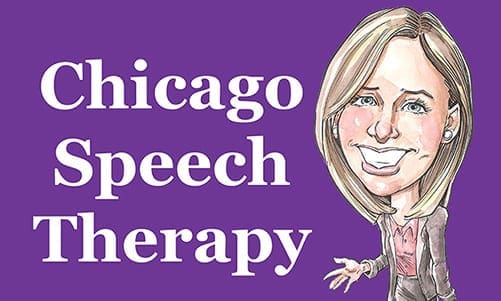Even if your child has not started using words, you can still communicate with your baby. By now you have probably deciphered what certain cries and coos mean; and your child has most likely learned the sound of your voice and turns his or her head toward you when you speak, acknowledging that you are talking. These are the first …
Logopedia de Chicago: En la película, los síntomas de la tartamudez reflejan la investigación actual
By Pam Belluck In the Oscar-nominated movie “The King’s Speech,” King George VI begins stuttering at 4 and struggles with it throughout his life. But he rarely talks like the stereotypical stutterer, Porky Pig, rapidly repeating letter sounds; usually the king has trouble getting sounds out from the get-go, blocked by sputtering pauses. His stutter is aggravated by stressful situations, …
Los hablantes tardíos y la logopedia
The book The Late Talker: What to Do if Your Child Isn’t Talking Yet (Agin, et al.) published this shocking statistic: “Sixteen million Americans have a speech or language disorder. An estimated 15 to 25 percent of young children and approximately forty-six million Americans have some kind of communication disorder (which includes hearing problems).” As a parent, you want to …
Food Chaining: Feeding Therapy for Picky or Problem Eaters
Emma’s Story Picture this scenario: Emma, who just celebrated her first birthday last month, is vehemently refusing to eat any pureed vegetables. She cries and moves her head to the side in defiance even when her mother playfully hovers the spoonful of puree in the air and makes noises to simulate an approaching train. Moreover, she even has an obvious …
5 Ways to Stimulate Speech Development and Learning in Your Toddler
Most parents are overjoyed when they hear their baby slowly pronounce his or her first word. There is an indescribable feeling of awe and excitement when your babbling baby, who just a few months ago was just learning to smile and crawl, can begin to enunciate the word “mama”, “dada”, or “toy.” It really is amazing to observe the speech …
An Overview of Mixed Receptive-Expressive Language Disorder in Toddlers
What is Mixed Receptive-Expressive Language Disorder? Mixed receptive-expressive language disorder is defined as a language disability that impairs both the understanding (reception) and speaking (expression) of language. This is a disorder that is generally more prevalent during childhood, and affects about three to five percent of all children, who display symptoms of either receptive or expressive language disorder, or both. …
El programa Lidcombe para el tratamiento de la tartamudez durante el período crítico del desarrollo del habla
Steven’s Story When Steven was three years old, he started developing a slight stutter. His parents assumed that it was probably an emotional condition due to the passing of his aunt (his main caregiver) and moving to a new city – both events that transpired in the same year. They chose to ignore the stutter and instead showered Steven with …
The Importance of Feeding Therapy: Ensuring Good Nutrition for a Problem Eater
Caring for a child is a humbling experience. As a parent, you are probably often struck by your child’s vulnerability, innocence and high level of dependence on you as their parent and caregiver. For instance, you can easily make or grab a sandwich when hunger pains strike during your workday; but your young infant is incapable of chewing a sandwich, …
Effective Speech Therapy Activities for Treating Communication Disorders in Children
If you have a child who is struggling with a speech disorder, there are many things you can do as a parent to make sure that your child is learning at a normal rate as compared to his or her peers. We cannot overstress the importance of early intervention during the critical period of development, during which the brain is …
The Value of Early Intervention: In-Home Speech Therapy for Stuttering
As you know and have likely experienced in your own life, well-established habits are difficult to break. As a fully developed adult, if you have grown accustomed to a particular way of speaking, writing or reading, you will likely face numerous challenges if you attempt to change your habits or rectify an incorrect learning technique. It can be argued that …
